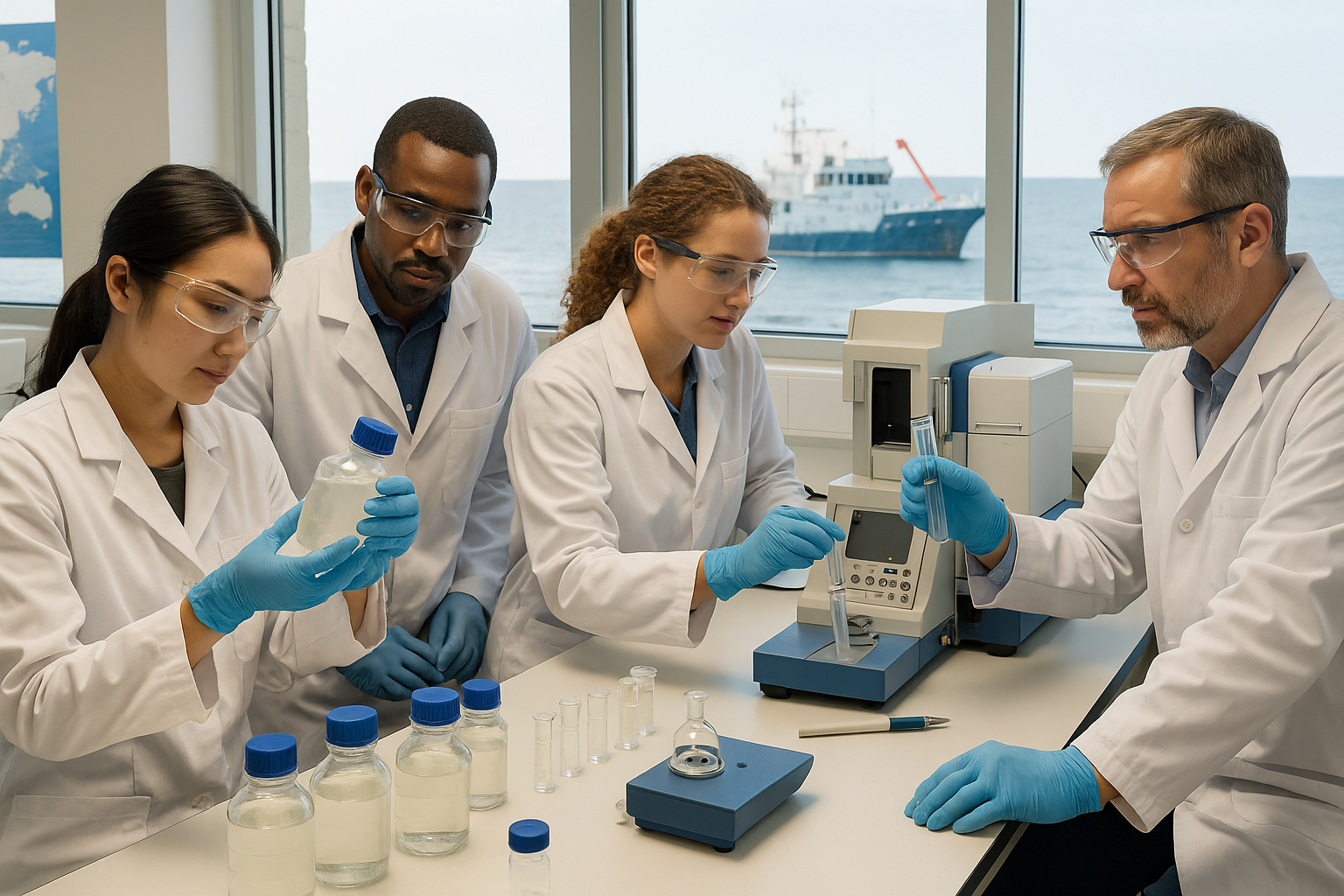IAEA Expands Global Ocean Health Monitoring Through Nuclear Science and Cooperation
“The ocean is a shared natural resource, and data collected by one country or region can give others insight into emerging challenges,” said Petra Salame, IAEA Programme Management Officer.

The International Atomic Energy Agency (IAEA) is expanding its efforts to support countries in understanding and protecting marine ecosystems through a groundbreaking global initiative launched in 2024. This new project aims to boost national capacities for monitoring marine pollution and ocean health, harnessing the power of nuclear and isotopic techniques, and fostering greater international collaboration.
Countries around the world, including Thailand, the Philippines, Colombia, Cuba, Indonesia, and many others, are already benefiting from this program through capacity building, harmonized procedures, and advanced analytical tools. The initiative is an extension of IAEA’s long-standing commitment to marine environmental protection and data-driven ecosystem management.
“The ocean is a shared natural resource, and data collected by one country or region can give others insight into emerging challenges,” said Petra Salame, IAEA Programme Management Officer.
Thailand Enhances Marine Monitoring with Nuclear Tools
One of the early success stories comes from Thailand, where the Office of Atoms for Peace is collaborating with IAEA to upgrade national capabilities for marine pollution monitoring.
“The IAEA ocean health project has provided Thailand with a great opportunity to further enhance its technical capabilities,” said Yutthana Tomnoi from the Office of Atoms for Peace.
The initiative is helping Thailand strengthen networks among local marine experts and adopt harmonized protocols for assessing various pollutants, including mercury, oil spills, radioactive materials, and biotoxins. These efforts are critical for forming a comprehensive national policy for marine and coastal management.
Philippines Tackles Seafood Safety with Radioligand Assay
In the Philippines, the IAEA has supported the implementation of the radioligand receptor binding assay, a sensitive technique for detecting biotoxins in seafood. These biotoxins are often linked to harmful algal blooms (HABs)—a growing threat to public health and coastal economies.
Early detection of HABs and associated toxins is key to preventing seafood-related illnesses and protecting vulnerable communities. With IAEA guidance, the Philippines has successfully integrated this technique into its national ocean monitoring programme, demonstrating the importance of nuclear science in real-time hazard mitigation.
Blue Carbon: Measuring the Value of Coastal Ecosystems
The new global IAEA initiative also promotes research into blue carbon, the carbon stored in coastal ecosystems such as mangroves, salt marshes, and seagrasses. Using stable isotopic techniques, scientists can trace sources of organic carbon and study trophic interactions within these ecosystems.
In Indonesia and Thailand, research has shown that mangrove soils contain vast stores of carbon, highlighting the role these forests play in mitigating climate change. Over 100 scientists across Asia and the Pacific have been trained in these advanced techniques through IAEA’s Technical Cooperation Programme.
Regional Ocean Acidification Research in the Caribbean and Latin America
In Latin America and the Caribbean, countries like Colombia and Cuba are taking the lead in addressing ocean acidification through data collection supported by the IAEA-backed Regional Observatory on Ocean Acidification. Established in 2020, the observatory forms part of the REMARCO Network, which unites 18 nations in regional collaboration on marine science using nuclear tools.
This work contributes directly to the United Nations Sustainable Development Goal 14 (Life Below Water) by enabling countries to monitor and report on ocean acidification with scientifically sound data. Such efforts are crucial as acidification poses a long-term threat to marine biodiversity, fisheries, and food security.
Harmonizing Global Ocean Data
A central focus of the IAEA initiative is standardization and comparability of data across countries and regions. Through a series of technical workshops and training sessions, scientists from different nations are working to harmonize sampling strategies and analytical techniques. This consistency enables the sharing and integration of ocean data for global and regional assessments.
“We have seen the benefits of a collaborative and international approach to ocean monitoring,” said Salame. “Our goal is to scale up previous efforts and foster more extensive cooperation.”
A Call for Data-Driven Ocean Stewardship
Speaking at the United Nations Ocean Conference, UN Secretary-General António Guterres stressed the urgency of reversing marine degradation and enhancing global conservation efforts. However, the lack of high-quality scientific data remains a major barrier to effective decision-making.
The IAEA is addressing this gap through its Marine Environment Laboratories, which provide scientific tools, training, and reference materials to help countries develop national ocean monitoring systems.
By empowering nations with state-of-the-art nuclear techniques, harmonized standards, and international networks, the IAEA’s global ocean health initiative is laying the groundwork for evidence-based marine governance, ecosystem resilience, and transboundary collaboration. As marine threats escalate, this timely project brings hope for more accurate assessments and stronger environmental policies worldwide.
ALSO READ
Japan Exports Used Navy Destroyers to Philippines Amid Growing Maritime Tensions
Japan to Export Naval Destroyers to Philippines: Strategic Alliance Advances
Japan's Strategic Move: Export of Navy Destroyers to the Philippines
Diplomatic Rift Deepens: Philippines Summons Chinese Ambassador
Strategic Sea Tensions: Philippines' Defense Chief Criticizes China's Expansion










